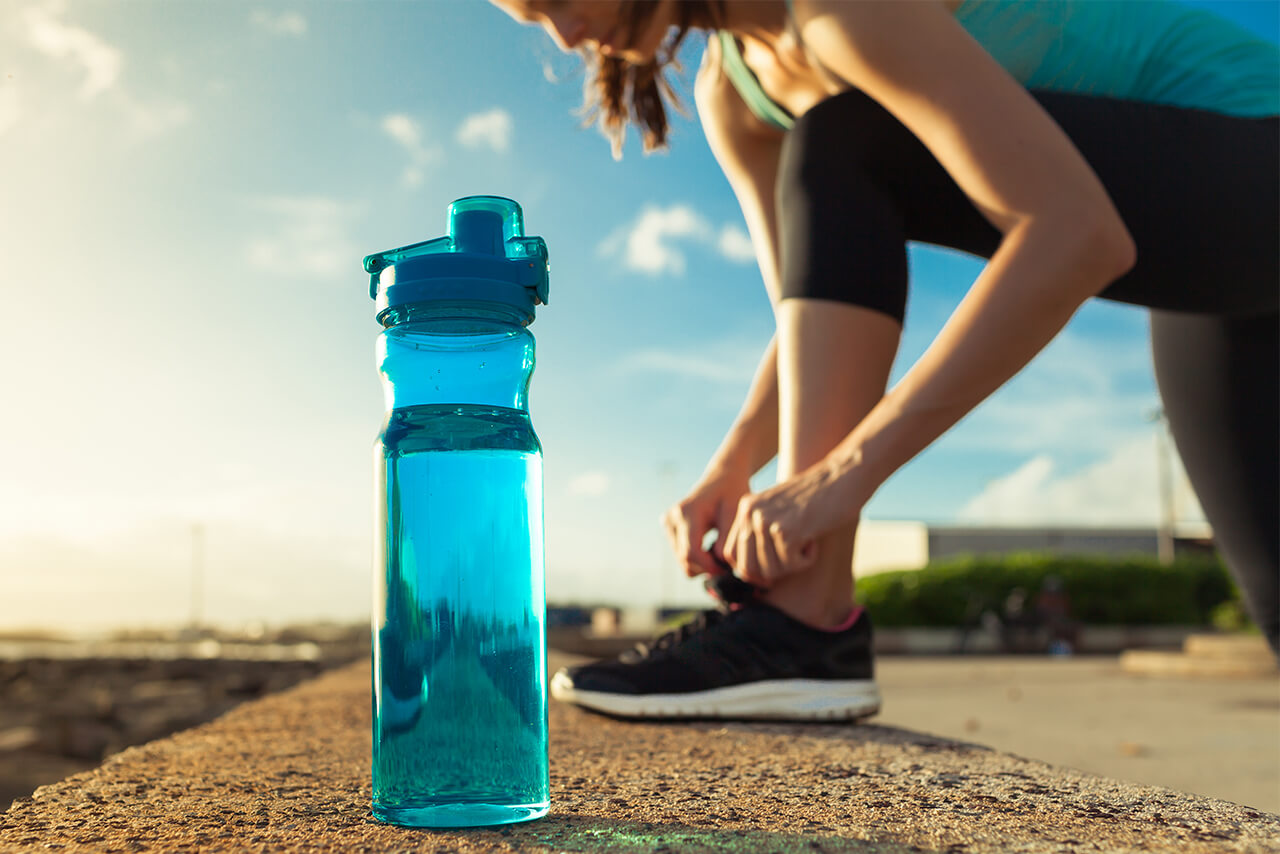A great hydration strategy is a vital part of each fitness programme. But the question is, how much water should you drink and when should you drink it? Limit dehydration during training and competitions by consuming water or, alternatively, a sports drink. Other beverages may also be appropriate however you would be wise to check how these fit into your total hydration as well as nutrition plan.
What being thirsty tells you
Being thirsty may be a useful signal of fluid loss. Some scientists make the suggestion that drinking when you feel thirsty is all that is required to guide fluid intake during fitness activities. This being said, in some situations it is impossible to gain access to drinks only when feel thirsty or to drink enough at a single point in time in order to prevent ongoing thirst.
In these situations, the fitness participants may develop a fluid plan which assists them with spreading their fluid intake across the drinking times that are available so that it keeps pace with total needs. It is not required to drink enough in order to prevent loss of body weight however the amount of dehydration experienced should usually be limited to a loss of less than roughly 2% of body weight (in other words, 1.0 kg for 50 kg person, 1.5 kg for a 75 kg person in addition to 2 kg for a 100 kg person).
As the drawbacks of dehydration, on high-intensity performance, are usually more numerous in warm environments and at altitude, in these circumstances you need to up your drinking practices to minimise the overall fluid deficit.
Rehydration following exercise
Recovery after exercise is a part of the preparation for your next exercise session. This means that the replacement of sweat losses is a vital part of this process.
Both water as well as salt that are lost in sweat must be restored. A little extra salt may be added to meals when sweat losses are high, but salt tablets should be used with caution. Strenuous bouts of prolonged exercise and heavy training, particularly aerobic exercise, stress the body. Adequate intakes of energy, protein, vitamins and minerals are all important to health and performance.
These nutrients are best when obtained from a varied diet based largely on nutrient-dense foods such as vegetables, fruits, beans, legumes, grains, lean meats, fish, dairy products as well as unsaturated oils. Anti-oxidant nutrients are important in assisting with protecting the body’s tissues against oxidative stress. As exercise increases the generation of oxidative species, it is logical that athletes who train hard may benefit from antioxidant supplementation.
What is anti-oxidant supplementation?
The term ‘antioxidant supplementation’ refers to supplements which contain concentrated forms of antioxidants. (These are substances that stabilise free radicals.) Your body produces free radicals naturally when you exercise as well as digest food. Environmental factors – such as UV exposure, air pollutants, tobacco smoke as well as industrial chemicals such as pesticides – are also sources of free radicals. If free radicals outstrip your body’s ability to govern them, a condition called oxidative stress occurs. Over time, this contributes to ageing as well as the development of diseases, including cancer.
The main antioxidants that assist with regulating free radicals in your body are the vitamins A, C, and E in addition to the mineral selenium. Antioxidant supplements contain 660% of the daily value (DV) of these key nutrients.
It’s generally thought that taking antioxidant supplements prevents your body from suffering damage caused by free radicals. Thereby, longevity is promoted and disease is warded off. However, taking antioxidant supplements in high amounts can do just the opposite.
Taking in sufficient amounts of water on a daily basis is crucial for many reasons such as regulating body temperature, keeping joints lubricated, preventing infections, delivering nutrients to cells, and keeping organs functioning properly. Being well-hydrated also enhances sleep quality, cognition as well as mood.
Medical experts recommend that you drink roughly 11 cups of water daily if you’re a woman. Men should be drinking 16 . Not all of these cups have to be plain water. For example, some can be water that is flavoured with fruit or vegetables (lemons, berries, orange or cucumber slices), or from tea. However, it’s best to stay away from sugar-sweetened beverages when attempting to stay hydrated.

Leave a Reply